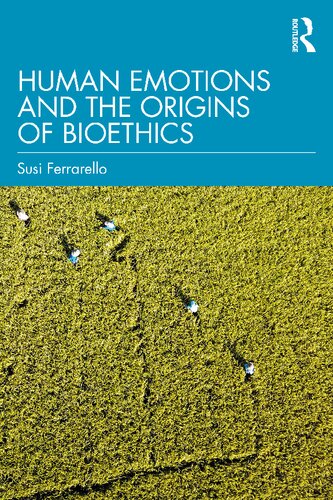

Most ebook files are in PDF format, so you can easily read them using various software such as Foxit Reader or directly on the Google Chrome browser.
Some ebook files are released by publishers in other formats such as .awz, .mobi, .epub, .fb2, etc. You may need to install specific software to read these formats on mobile/PC, such as Calibre.
Please read the tutorial at this link: https://ebookbell.com/faq
We offer FREE conversion to the popular formats you request; however, this may take some time. Therefore, right after payment, please email us, and we will try to provide the service as quickly as possible.
For some exceptional file formats or broken links (if any), please refrain from opening any disputes. Instead, email us first, and we will try to assist within a maximum of 6 hours.
EbookBell Team

0.0
0 reviewsThis book provides a unique phenomenological dialogue between psychology and philosophy on the origin of bioethics that shows the importance of bringing emotions into bioethical discourse.
Divided into two parts, the book begins by defining bioethics and explaining the importance of emotions in making us human, allowing us to consider life holistically. Ferrarello argues that emotions and bioethics are better served when they are combined, and that dismissing emotions as nothing more than a nuisance to our rationality has created a society that does not fit our human nature. Chapters explore how ethics relate to intimate life and how ethical agents determine themselves within their surrounding world, uniquely and interrogatively using ‘bioethics’ to consider not only medical dilemmas but also issues concerning environmental and individual well-being. By addressing personal, interpersonal, and societal problems as dynamically interconnected in bioethical problems she helps us to renew our sense of responsibility toward a good quality of life.
This interdisciplinary book is invaluable reading for students of health science, psychology, and philosophy, as well as for those interested in the link between emotions and bioethical discourse from both a psychological and philosophical perspective.